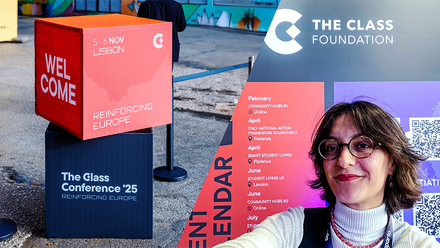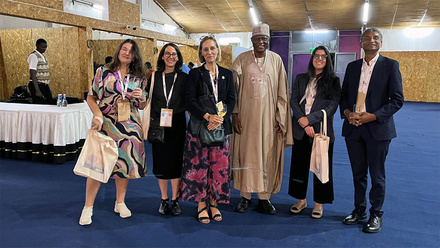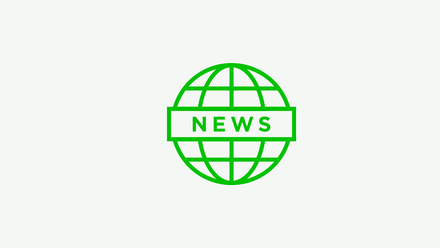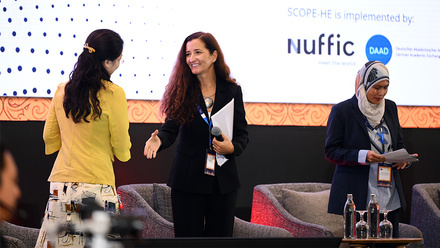The EAIE Mentorship programme: beyond networking
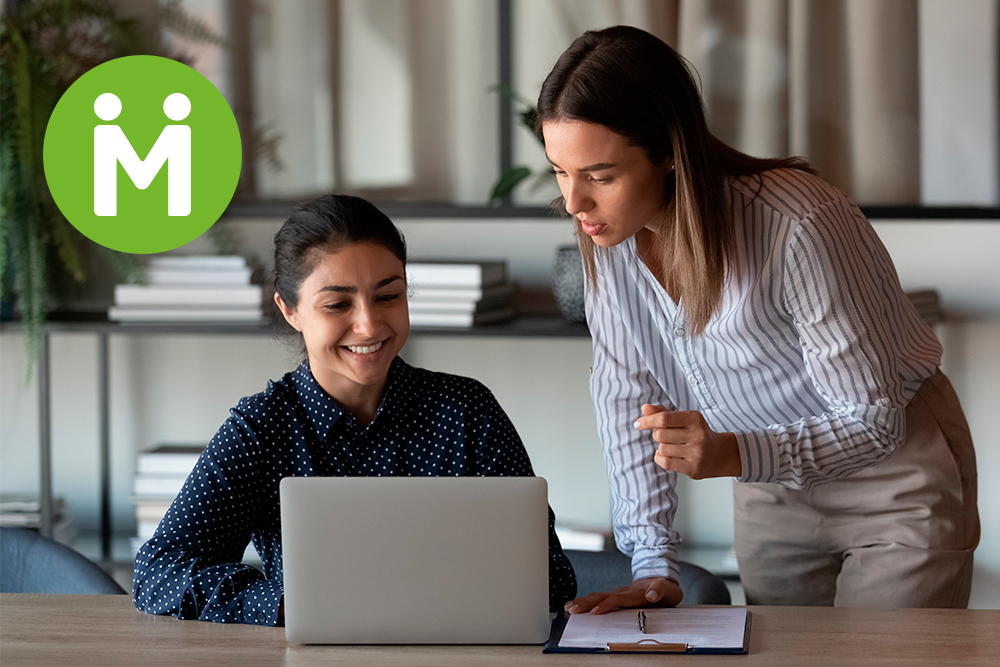
The EAIE Mentorship programme aims to support its members in developing professional relationships and networks in the international education community. Since its beginnings, this platform has expanded into a large, structured network that helps individuals in our field to establish deep collaborative relationships, both within Europe and beyond. An example of the potential of this programme is nicely summarised by Evelien Hack in a 2019 EAIE blog post in which she recounted her mentorship of Florina Camarasu. Building on those insights, we wanted to add our own recent experiences and perspectives and share some takeaways.
We joined the EAIE Mentorship programme at different times and although in the same professional field, we were coming from different cultural and professional backgrounds. Sasha Perugini has worked in internationalisation and study abroad since the late 1990s for universities in the US, Italy, and Australia. Her first experience with the Mentorship programme, as a mentor, was in 2014. Arum Perwitasari’s career has been in language assessment and roles supporting universities and students around the globe. Arum applied to be a mentee in 2020. Our experiences with the programme were distinct but mutually beneficial and complementary.
The mentee perspective: Arum
My first meeting with my mentor, Sasha, occurred online (it was 2020, after all!). I had no idea what I was planning to do, but I told Sasha I wanted to learn more about internationalisation and to both broaden my network and deepen my knowledge of higher education issues. Coming from a non-university setting and working in an organisation that focuses on assessment and supporting international students, I wanted to better understand how universities design, implement and manage internationalisation strategies.
During our conversations, we realised that although we were both professionals in the field of internationalisation, we were coming from two different nationalities and different generations, living in different countries, with different cultural backgrounds and a different professional focus within the same field. Our differences were crucial in enriching our conversations, so we decided to build on these differences and explore them further by turning our meetings into a mutual learning experience.
Our differences were crucial in enriching our conversations
After several discussions with Sasha, I realised that one of the early and most common internationalisation strategies implemented by higher education institutions is developing intercultural competence. Sasha’s teaching experience and her role in her current position as director of a large study abroad operation were a perfect match to my eagerness to learn more about internationalisation strategies through developing intercultural competence. Thus, we decided to focus on one key point of our learning objectives: the role of intercultural competence as a key element of internationalisation.
Professionally, the Mentorship programme has been an eye-opener for me. The knowledge I gained has helped me adopt new interpersonal skills and develop verbal and non-verbal cue awareness, as well as communicative strategies appropriate for a multicultural community and workplace. From Sasha, I learned some intercultural communication strategies for scenarios such as welcoming a foreign student into the classroom or integrating culture clash, stereotypes or clichés about a culture, even things as simple as how Italians use their hand gestures and the meaning behind them.
Professionally, the Mentorship programme has been an eye-opener for me
Addressing this crucial area, Sasha and I agreed to discuss both main theoretical perspectives and practical cases. Our discussions ranged widely from identity construction to cross-cultural comparisons related to race, ethnicity, social class and gender and how these elements impact communication, support for international students in host institutions and initiatives for improving intercultural discourse. However, we also explored other topics such as the gender gap, leadership styles, diversity, inclusion and innovation.
The Mentorship programme also created more ways for me to share my experiences in intercultural competence with broader audiences through different types of channels. For example, Sasha invited me as a guest lecturer to a class she teaches on cross-cultural management so that I could share my thoughts and experiences with her class. These first steps also paved the way for me to write research proposals and articles on related topics. Ultimately, the EAIE Mentorship programme allowed me to establish solid relationships with colleagues in a culturally and linguistically diverse international education community.
The mentor perspective: Sasha
During my first meeting with Arum, I focused on understanding her needs and expectations. I wanted to be of help and ensure that I could keep up with a one-year commitment efficiently, guaranteeing her some tangible outcomes and an overall pleasant experience.
Arum wanted to broaden her perspectives and learn more about internationalisation in Europe and in the US, but she did not have specific asks. I was thrilled to see how open and motivated she was: eager to interact, learn, network and share viewpoints and in general contagiously enthusiastic. At the same time, I felt the need (and responsibility) to give some structure to our mentorship, and started to think about ways to make our get-togethers fruitful and interesting for us both. I proposed a list of topics in which I felt I could bring some insight and could share my experience.
I made sure that Arum received the guidance she expected and in turn was able to further refine my own skills and experience as a mentor
She was particularly attracted by the content of my course on cross-cultural competence, communication and management, so I started with some customised ‘lectures’, which turned almost immediately into broader discussions and intellectual interactions, mainly on the topics of intercultural discourse and communication. We agreed on which learning objectives we wanted to focus on, which ultimately were: cross-cultural competence, women and leadership, cultural adjustment, and trends and innovations in internationalisation. I made sure that Arum received the guidance she expected and in turn was able to further refine my own skills and experience as a mentor. I focused on learning how to be a good listener and strike a good balance between remaining open to any topic that emerged while trying to give a theoretical or contextual frame to our discussions.
I eventually invited Arum as a guest speaker in my course on ‘cross-cultural management’ and she impressed the students by talking about her cultural adjustment from Indonesia to the Netherlands. She presented in two semesters and proved to be a precious addition bringing real-life anecdotes that students truly appreciated and engaged with by asking many questions. I have invited Arum again this spring and am very much looking forward to find the opportunity to invite her to speak in person!
Top tips to get the most out of an EAIE mentorship
From our experience, some of the main takeaways and suggestions to future participants in the EAIE Mentorship Programme include the following:
For both mentor and mentee:
- Stay open to changes and to new paths. Flexibility may lead your interactions down unexpected paths that can be enriching for both participants.
- As a mentorship programme requires a process, a relationship that has to evolve, it can be helpful to work at consistently staying in touch. We all always have too much going on and it can be easy to disengage, but we found that consistent communication made all the difference.
- See the mentorship as a start for a long-term professional collaboration. Mentors and mentees are working in the same field, after all, and may have many future opportunities to interact in their professional lives.
For the mentor:
- To be productive and help the mentee achieve their objectives, keep meetings simple and focus on building the relationship. In our experience, we noticed it worked best to limit the agenda to one topic. One hour online flies and with a limited agenda we were able to give more room to creativity.
- In order to stay open to younger and fresh perspectives, consider reverse mentoring. This involves surfacing topics that allow the mentor to learn from the mentee.
- To remove formalities and facilitate smoother interaction, take the pressure off wherever possible. For instance, avoid deadlines and focus on enjoying the interaction.
For the mentee:
- Before your first meeting, try to write down what you expect from the programme and try to be as specific as possible. Then, share your expectations with your mentor but stay open in case not all your expectations can be met.
We both enjoyed the process thoroughly and while we have never met in person we have now become friends. We hope others in the EAIE community will also give it a try!



